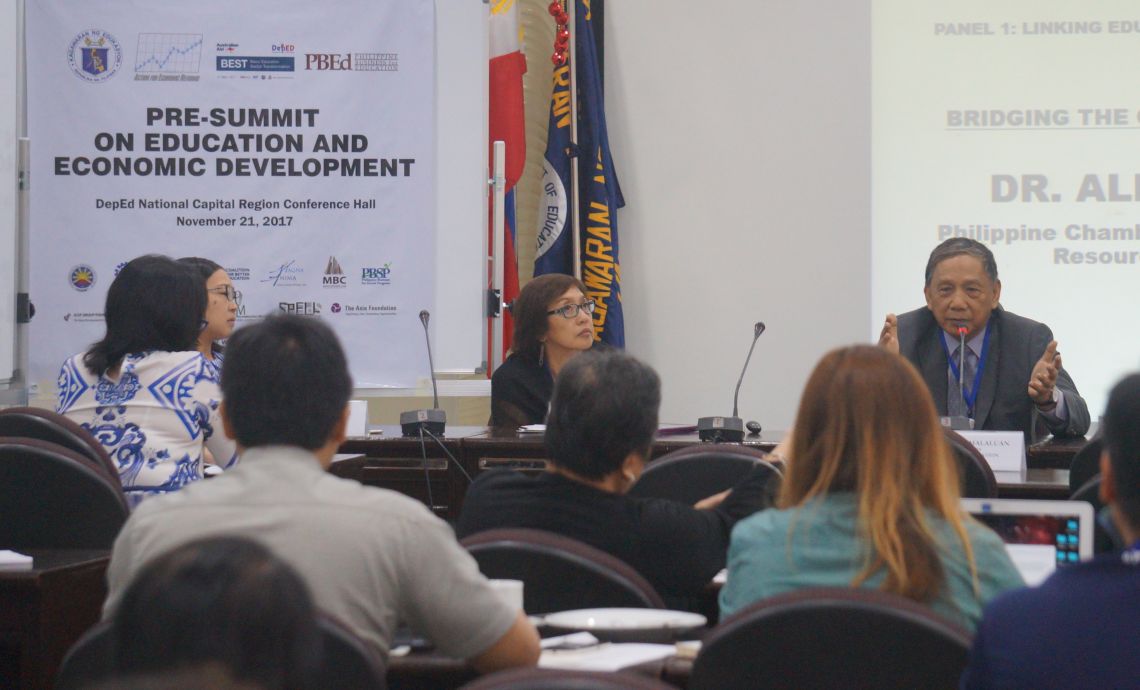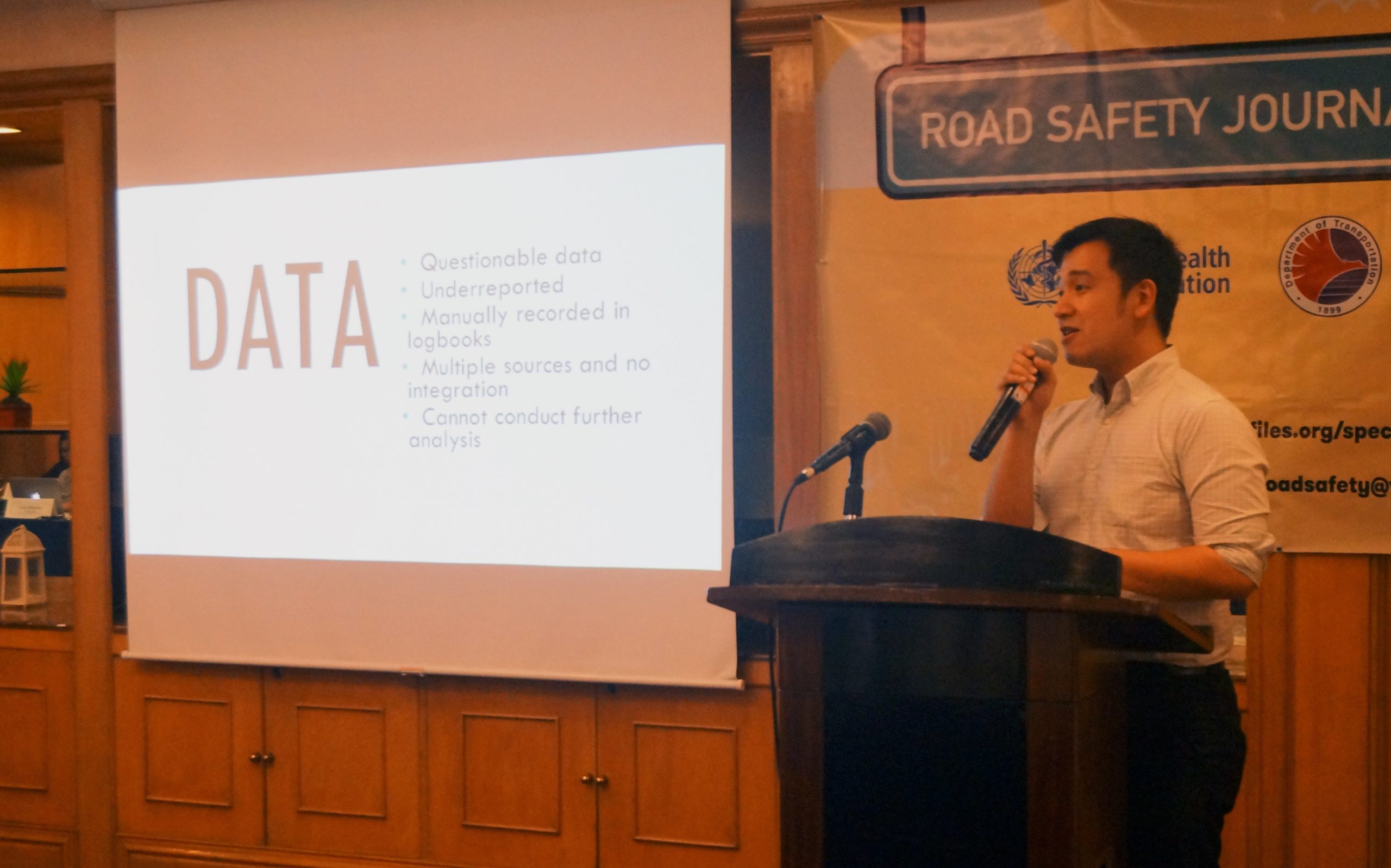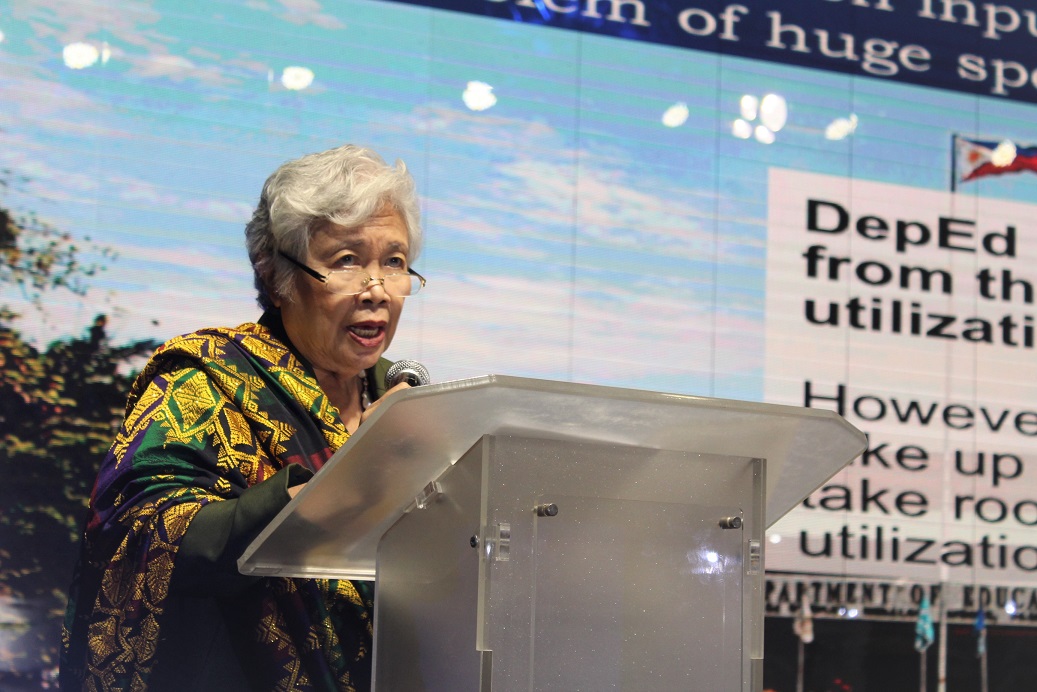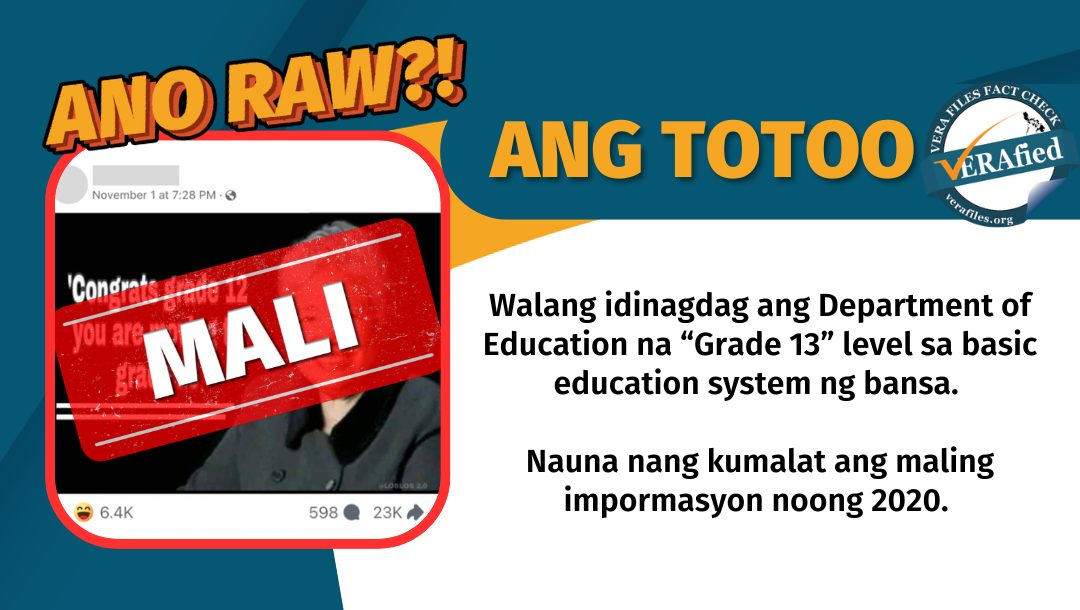
Educators, business leaders and advocates discussed solutions to bridge the widening skills gap in the labor market in a Nov. 21 conference at the Department of Education, Quezon City.
While the Philippines produced over half a million college graduates last year, not all of them may have the skills needed to land a job in larger, more innovative companies, a study by the World Bank revealed.
“The standard proxy for educational attainment—years of formal schooling—is increasingly inadequate as a measure of workforce skills,” according to the study, “Developing Socioemotional Skills for the Philippines’ Labor Market,” whose findings were reported in an education and employment conference Nov. 21.
Employers, especially innovative firms, are more inclined to hire workers with adequate “socioemotional” or “soft skills”—the collective term for behavior, attitude, personality and mindset, said the study set to be launched formally on Nov. 23.
The study defines innovative firms as those that introduced new or significantly improved products or services, or adopted new production methods in the last three years.
According to the study, about one-third of employers surveyed report being unable to fill vacancies due to a lack of applicants with the requisite socioemotional skills.
“Employers are concerned. Even if they hire college graduates, they are not necessarily instrumental in the workplace,” Takiko Igarashi, one of the researchers, said at the conference.
The study noted the need to enhance the national education and training system, which it said could reduce training costs borne by innovative firms and encourage the growth of new industries and sectors.
It suggested in particular the integration of teaching of socioemotional skills in the mandatory K-12 program, as well as in technical and vocational courses to address the widening skills gap.
Music, arts, physical education, and health, along with values education, have the greatest impact on socioemotional skills based on international experience, the study found.
“These subjects stimulate creativity, encourage critical thinking, reward persistence, foster self-motivation, and build self-esteem,” it added.
Children that have attended preschool tend to score higher on measures of literacy and socioemotional skills, Igarashi said.
Yet, even as the study suggests that primary school is the optimal time for shaping socioemotional skills, the basic education curriculum allocates only five hours weekly to these subjects.
More, the study said schools continue to be judged solely by students’ performance on cognitive achievement tests rather than on soft-skills competencies. Teachers, meanwhile, are not adequately trained to develop socioemotional skills.
Department of Education (DepEd) Assistant Secretary Nepomuceno Malaluan acknowledged the need to re-equip teachers, on top of introducing interventions in the education curriculum.
“Right now, the truth is, there’s a lot of resources going to the education sector. There needs to be a way to be able to utilize (these) effectively and efficiently,” Malaluan told VERA Files.
Part of the K-12 program’s agenda, he said, is to build skills needed by the local, national and even international economy.
“It is important to define where we are going and the education system is an important component of that because it is where your human resource is,” Malaluan added.
Besides the skills gap, there is also a lack of cooperation between schools and the business community, said Dr. Alberto Fenix, Jr. of the Philippine Chamber of Commerce and Industry, which has over 30,000 registered businesses.
Most employers and entrepreneurs, he said, were busy generating sales and revenues, in the process overlooking the necessary competencies for the jobs they create.
There is a need to “convince enterprises that doing education and training is not only for the benefit of themselves, but (they should) also have the bigger view of benefiting the economy,” Fenix said.
These proposals, among other inputs, will be presented in a nationwide education summit on Dec. 5 to 6 to be convened by the DepEd, the Commission on Higher Education, and the Technical Education and Skills Development Authority.
Malaluan, meanwhile, welcomed the cooperation from the business sector in improving the skills of the workforce. Building strong partnerships with other stakeholders, he said, is key in addressing the skills gap as well.
Quoting Education Secretary Leonor Briones, Malaluan said it is important to develop graduates who can create jobs themselves. Before, he explained, basic education was confined to higher education as the only “exit point.”
“This is not the case anymore. Because one of the exits now is employment and entrepreneurship. And that’s new to DepEd. Because DepEd used to be on the cognitive side to prepare them for college work. That’s a very big difference,” Malaluan said.




